Search Results
Showing results 701 to 720 of 1179

Science of Sunblock
Source Institutions
This is an activity (located on page 3 of the PDF under Stained Glass Activity) about nanotechnology making its way into everyday products, such as sunscreen, and how effective these invisible particl
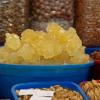
Comparing Crystals
Source Institutions
In this chemistry activity (page 3 of the PDF), learners will learn about crystals by growing their very own.
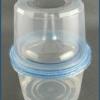
Mosquito Life Cycle
Source Institutions
In this activity, learners build a plastic emergence chamber (or use purchased "mini mosquito breeder") to observe and analyze the mosquito life cycle.
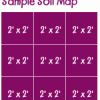
Creating a Soil Map
Source Institutions
In this activity, learners investigate soil conditions by creating a soil map. Learners record soil characteristics and compare the conditions of soil in different grid sections.
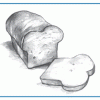
Chemical Reactions in Your Mouth
Source Institutions
In this chemistry activity (page 5 of the PDF), learners will see that chewing is more than just the crushing up of food; there is actually a chemical change going on at the same time.

Half Full or Half Empty
Source Institutions
In this activity (12th activity on the page), learners conduct an experiment to demonstrate how muscles are constantly feeding information to the brain about what they are doing.
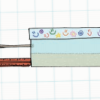
No-Slip Grip
Source Institutions
In this physical sciences activity, learners explore friction. Learners investigate the factors that affect the force required to move an object.
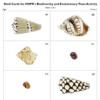
Biodiversity and Evolutionary Trees
Source Institutions
In this interactive activity, learners analyze seashells to explore phylogeny and evolution. Learners identify similar and dissimilar seashells to create a phylogenetic tree.
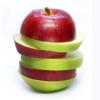
The Nose Knows
Source Institutions
In this activity (2nd activity on the page), learners explore how the nose is responsible for part of the flavor we taste in food.
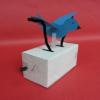
Cranking Bird
Source Institutions
In this activity, learners build a mini crank machine to make a bird "fly." This engineering activity introduces learners to automata, rotational motion, cranks and cams.
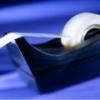
Dispenser Designs
Source Institutions
In this activity, learners explore how engineers work in a team to solve problems.

Temperature Tactics
Source Institutions
In this activity, learners explore the devices used over time to measure changes in temperature.

Launch Altitude Tracker
Source Institutions
In this activity, learners construct hand-held altitude trackers. The device is a sighting tube with a marked water level that permits measurement of the inclination of the tube.
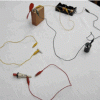
Piezoelectric One-Way Remote
Source Institutions
In this activity, learners construct a device out of a piezoelectric igniter, like those used as barbecue lighters.
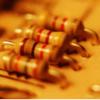
Using Ohm's Law to Build a Voltage Divider
Source Institutions
In this activity, learners apply Ohm’s Law to construct voltage divider circuits. Learners discover how to read resistor codes and calculate resistor values.
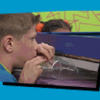
Air Lift
Source Institutions
In this physics activity, challenge learners to lift a book with just air using a plastic bag and a straw. This activity demonstrates compressed air and forces.
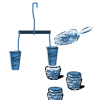
A Question of Balance
Source Institutions
In this activity, learners explore how engineers use scales and measures when designing a manufacturing process to ensure that final products are uniform in weight or count.
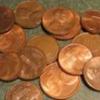
Can You Copperplate?
Source Institutions
In this activity, learners explore chemical engineering and how the processes of chemical plating and electroplating have impacted many industries.
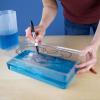
Exploring Earth: Rising Sea
Source Institutions
“Exploring Earth: Rising Sea” is a hands-on activity demonstrating ways to use topographical mapping techniques to track changes in sea level. The activity is connected to current NASA research.
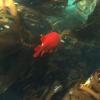
Design a Fish
Source Institutions
In this activity (page 2 of PDF under GPS: Alligator Habitat Activity), learners will study the adaptations different fish species have developed to survive in their habitats.
